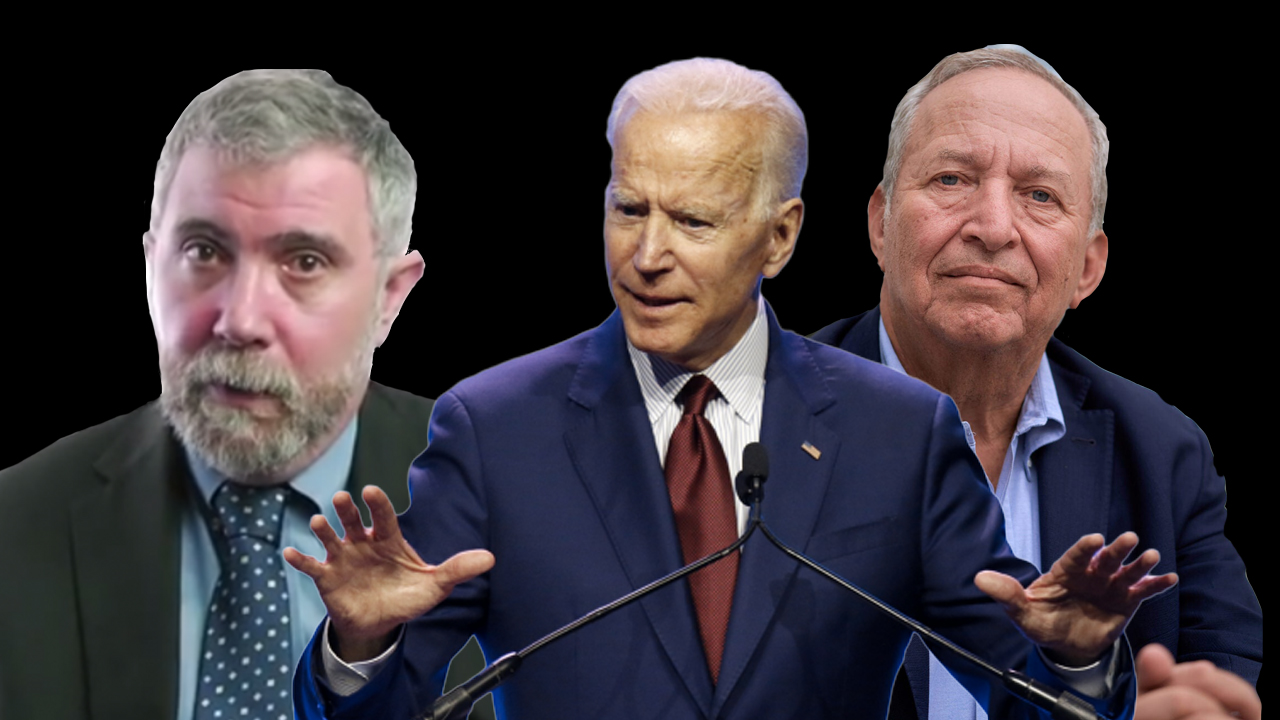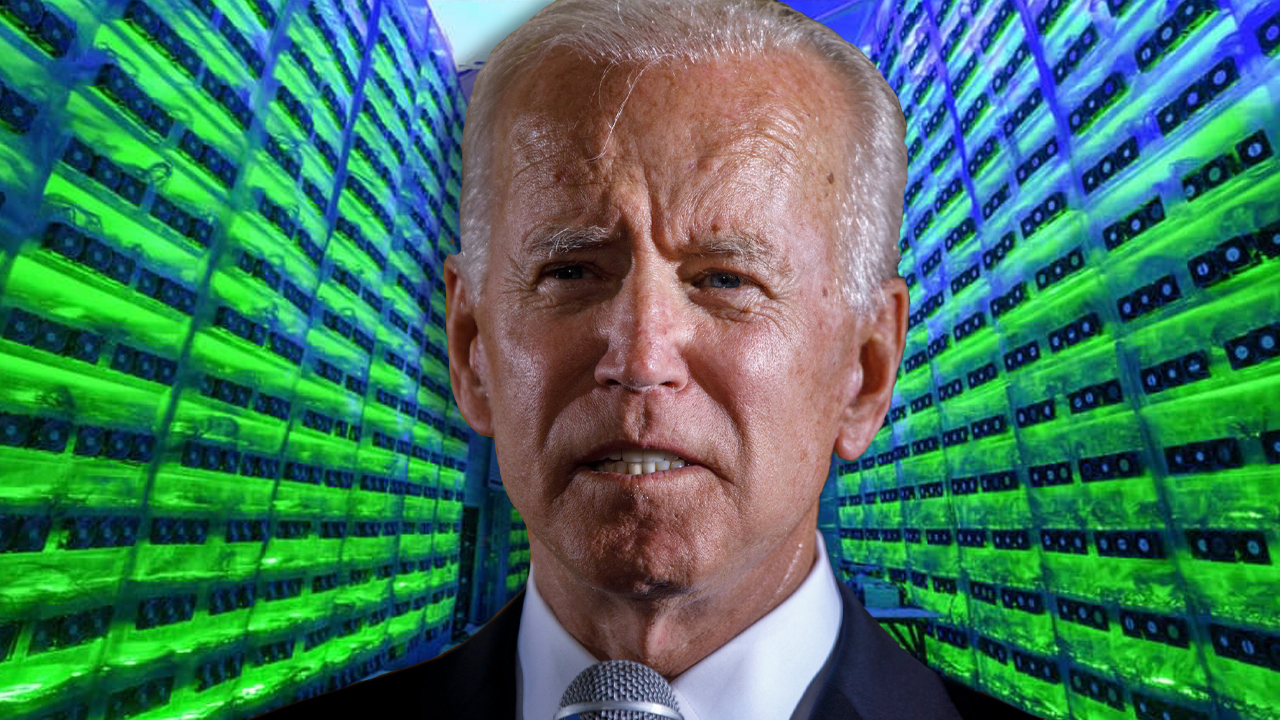 Stock and cryptocurrency markets on Thursday saw volatility, after experiencing fluctuations during the tensions between China and Taiwan on Tuesday and Wednesday. Major indexes like the S&P 500, Dow Jones, and NYSE have shed a few percentages today, while the global cryptocurrency market capitalization lost 2.5% in 24 hours, dropping to just above the $1.1 […]
Stock and cryptocurrency markets on Thursday saw volatility, after experiencing fluctuations during the tensions between China and Taiwan on Tuesday and Wednesday. Major indexes like the S&P 500, Dow Jones, and NYSE have shed a few percentages today, while the global cryptocurrency market capitalization lost 2.5% in 24 hours, dropping to just above the $1.1 […]
The $280 billion bill, which aids the semiconductor industry, also incorporated Representative Darren Soto’s bill to create a position to advise the president on blockchain.
The United States House of Representatives passed the Chips and Science Act on Thursday by a vote of 243 to 187. The bill, which was introduced into the Senate over a year ago, provides grants and incentives to the semiconductor industry and encourages research. It also creates a blockchain and cryptocurrency specialist position in the White House Office of Science and Technology Policy (OSTP).
The bill passed the Senate on Wednesday. It has an overall price tag of $280 billion, which includes $52 billion in grants and incentives for U.S. semiconductor manufacturers who face fierce competition from China, and $170 billion in incentives for research. It is expected to contribute to the easing of supply chain issues in the industry as well.
️ Good news from DC: the Chips Bill just approved by Congress creates a dedicated @POTUS advisor on blockchain and web3 in the White House OSTP. Some of us have been pushing this for a long time. Big props to @RepDarrenSoto for the amendment that made it happen. pic.twitter.com/0V35cOubbH
— Tomicah Tillemann (@TomicahTD) July 29, 2022
Tucked into the lengthy “Miscellaneous Science and Technology Provisions” chapter of the bill is a section creating a blockchain and cryptocurrency specialist position in the OSTP to “advise the President on matters relating to blockchain and cryptocurrencies.” According to a statement released by Democratic Florida Representative Darren Soto, the language of that provision comes from a bill he introduced separately. Soto said in the statement:
“As a co-chair of the Congressional Blockchain Caucus and a member of the House Energy and Commerce Committee, I am proud to foster the policy needed to ensure innovation continues to take shape in our government and the CHIPS and Science Act will do just that.”
Related: Scaramucci sees bright future for crypto but ‘very worried’ about US politicians
Soto has a long record of crypto advocacy. He was a co-sponsor with Republican Tom Emmer of the 2020 bill to exclude small purchases made with crypto from the capital gains tax. He and Emmer were also among the co-sponsors of the reintroduced Digital Commodity Exchange Act in April 2022. The OSTP was given a role in several of the initiatives mandated by President Joe Biden’s Executive Order on Ensuring Responsible Development of Digital Assets.
 After people have accused bureaucrats and government agencies of changing definitions during the last few years, Joe Biden’s administration now claims that a second consecutive quarter of negative gross domestic product (GDP) does not indicate the U.S. is in a recession. This is despite the fact that two negative GDPs have always been considered a […]
After people have accused bureaucrats and government agencies of changing definitions during the last few years, Joe Biden’s administration now claims that a second consecutive quarter of negative gross domestic product (GDP) does not indicate the U.S. is in a recession. This is despite the fact that two negative GDPs have always been considered a […] In mid-June red hot inflation reared its ugly head in America once again, as the latest U.S. Bureau of Labor Statistics’ Consumer Price Index (CPI) report indicated that inflation in June rose at the fastest pace in over 40 years. U.S. president Joe Biden has been in office for 18 months now, and media reports […]
In mid-June red hot inflation reared its ugly head in America once again, as the latest U.S. Bureau of Labor Statistics’ Consumer Price Index (CPI) report indicated that inflation in June rose at the fastest pace in over 40 years. U.S. president Joe Biden has been in office for 18 months now, and media reports […] Trend forecaster Gerald Celente told Bitcoin.com News that “World War III has begun,” weighing in on Covid-19, crypto, the Great Reset, and gold in an exclusive interview. Jordan Belfort, aka the Wolf of Wall Street, talked long-term BTC investing, as scorching inflation in the U.S. continues to plague Americans, though Biden’s White House says the […]
Trend forecaster Gerald Celente told Bitcoin.com News that “World War III has begun,” weighing in on Covid-19, crypto, the Great Reset, and gold in an exclusive interview. Jordan Belfort, aka the Wolf of Wall Street, talked long-term BTC investing, as scorching inflation in the U.S. continues to plague Americans, though Biden’s White House says the […] According to a new report, U.S. president Joe Biden and his administration are focused on proof-of-work (PoW) mining. The principal assistant director for energy for the White House Office of Science and Technology Policy (OSTP) discussed the research report on July 2, 2022. The OSTP official, Costa Samaras, said if digital currencies plan to stick […]
According to a new report, U.S. president Joe Biden and his administration are focused on proof-of-work (PoW) mining. The principal assistant director for energy for the White House Office of Science and Technology Policy (OSTP) discussed the research report on July 2, 2022. The OSTP official, Costa Samaras, said if digital currencies plan to stick […] According to Lancium Inc., a crypto mining infrastructure firm, the company has signed a deal with the Texas battery-storage provider Broad Reach Power LLC. Broad Reach Power plans to supply battery power to Lancium’s Fort Stockton-based 25-megawatt facility and when the grid is swamped by excessive energy demand, Lancium can continue mining without reducing its […]
According to Lancium Inc., a crypto mining infrastructure firm, the company has signed a deal with the Texas battery-storage provider Broad Reach Power LLC. Broad Reach Power plans to supply battery power to Lancium’s Fort Stockton-based 25-megawatt facility and when the grid is swamped by excessive energy demand, Lancium can continue mining without reducing its […]
A new legal advisory notice from the US Office of Government Ethics prohibits any employee who owns cryptocurrency from working on Federal crypto regulation.
US government officials who privately own cryptocurrencies are now banned from working on regulations and policies that could affect the value of digital assets.
A new advisory notice released by the US Office of Government Ethics (OGE) on Tuesday stated that the de minimis exemption — which allows for the owners of securities who hold an amount below a certain threshold to work on policy related to that security — is universally inapplicable when it comes to cryptocurrencies and stablecoins.
“As a result, an employee who holds any amount of a cryptocurrency or stablecoin may not participate in a particular matter if the employee knows that particular matter could have a direct and predictable effect on the value of their cryptocurrency or stablecoins.”
The notice provided an example scenario whereby an employee who owns a mere $100 of a certain stablecoin, is asked to work on stablecoin regulation — the employee in question cannot participate in work concerning regulation “until and unless they divest their interests in [that] stablecoin.”
The notice specified that this ruling still applies even if the cryptocurrency or stablecoin in question were to ever “constitute [a security] for purposes of the federal or state securities laws.”
The new ruling applies universally to all federal government employees including The White House, The Federal Reserve and The Department of the Treasury.
The term “de minimis” comes from a longer Latin phrase, meaning: “the law does not concern itself with trifles.”
Related: Self-regulatory organizations growing alongside new US crypto regulation
The only exemption from the OGE’s crackdown on crypto ownership is that policy makers are allowed to hold up to $50,000 in mutual funds that invest broadly in companies that would benefit from crypto and blockchain technology. The reasoning for this exemption is because they “are considered diversified funds.”
Despite the seemingly harsh rules concerning employee investment in the crypto sector, the United States continues to move forward in integrating the cryptocurrency industry, with the US president Joe Biden announcing a “whole-of-government” approach to regulation concerning the digital asset sector.
According to Raymond Shu, the co-founder and CEO of Cabital, recent legislative proposals could make the U.S. one the only Western countries to fully regulate and accept stablecoins and other digital assets as official parts of the financial system.

A leading legal publication reports the White House is undertaking a study on crypto asset mining and the attendant environmental consequences. According to Bloomberg Law, the priority of the study is to develop policy recommendations for reducing crypto mining energy consumption and emissions footprint. Says White House Office of Science and Technology Policy Principal Assistant […]
The post White House Preparing New Study on How To Curb Crypto Energy Footprint: Report appeared first on The Daily Hodl.
 Inflation in the U.S. continues to remain red hot as consumer prices last month increased sharply to 8.5% in March compared to the same month last year. Metrics show the Bureau of Labor Statistics’ (BLS) Consumer Price Index (CPI) spiked last month at the fastest pace since December 1981. Inflation Continues to Hammer the US […]
Inflation in the U.S. continues to remain red hot as consumer prices last month increased sharply to 8.5% in March compared to the same month last year. Metrics show the Bureau of Labor Statistics’ (BLS) Consumer Price Index (CPI) spiked last month at the fastest pace since December 1981. Inflation Continues to Hammer the US […]